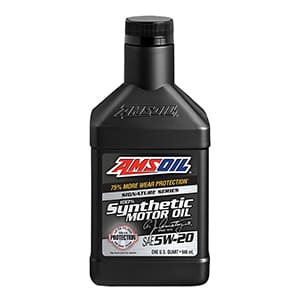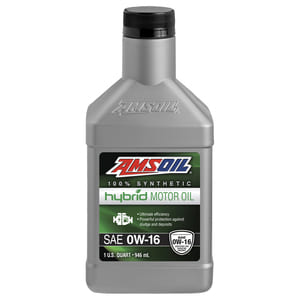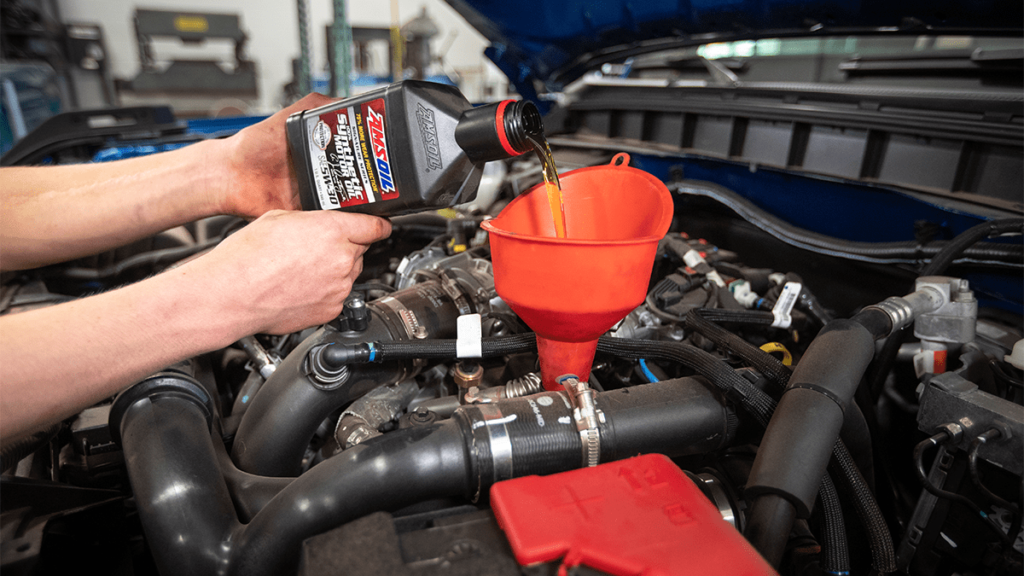The topic of engine oil maintenance often brings about numerous questions from vehicle owners. Understanding when to change your engine oil is crucial for ensuring the longevity and efficiency of your vehicle. Given the complexity of this subject, we have gathered some of the most frequently asked questions and provided insights from leading experts in the field.
Modern engines and advanced oil formulations have transformed oil change intervals substantially. Let’s explore these changes and clarify some common misconceptions about engine oil maintenance.
Common Oil Change Questions

Addressing Viewer Inquiries
Vehicle owners often wonder about the right time to change their engine oil and what factors affect oil quality. Keeping your engine in optimal condition involves staying informed about these aspects. This comprehensive guide is aimed at answering the common queries related to engine oil changes.
Importance of Feedback
Feedback from users has highlighted areas that need clarity, driving the need for expert advice. Here, we address some of the frequently asked questions to provide a deeper understanding of engine oil maintenance.
Expert Responses to Key Questions
Question 1: Changing Oil When It Turns Black
Phil from Santa Fe, New Mexico asks: “Should I change my oil when it turns black?”
Expert Response
There is no need to change your oil solely based on its color turning black. The darkening of oil is a natural part of its lifecycle. As the oil circulates through your engine, it picks up contaminants which lead to this color change.

Why Oil Changes Color
- Gasoline Contamination: Fuel can mix with oil through various processes.
- Blow-by: As the engine fires, gases get past the piston rings, a designed feature, and mix with the oil.
- Carbon and Soot: These combustion byproducts contribute to the oil’s darkening.
Understanding Blow-by
Definition and Illustration
Blow-by refers to the phenomenon where gases pressurized in the combustion chamber bypass the piston rings and enter the crankcase. This is a natural occurrence related to the high compression within the engine.
Causes and Effects
- Compression: High-pressure conditions force contaminants into the oil.
- Piston Ring Design: Even with optimal design, some level of blow-by is inevitable.
Oil Formulation and Its Role

Handling Byproducts
Modern engine oils are formulated to handle the contaminants produced by engine combustion. Proper formulation includes a balance of dispersants and detergents which keep these byproducts in suspension until the next oil change.
Importance of Proper Oil Formulation
High-quality oils are designed to maintain performance despite the accumulation of contaminants, thereby extending the time between oil changes.
Question 2: 3,000-Mile Oil Change Necessity
Dennis from Orlando asks: “Do I really need to change my oil every 3,000 miles?”
Expert Response
The traditional recommendation of a 3,000-mile oil change has evolved with advancements in both engine technology and oil formulation.
Modern Oil Change Intervals
Contemporary vehicles often have recommended oil change intervals of 5,000 to 7,500 miles. It’s essential to refer to your vehicle’s owner’s manual for specific guidelines.

AMSOIL Signature Series and Extended Intervals
25,000-Mile Oil Change Interval
AMSOIL offers products like the Signature Series, engineered to extend oil change intervals up to 25,000 miles. These advanced oils are equipped with robust additives that manage contaminants, ensuring long-lasting performance.
Benefits of Advanced Formulation
Robust dispersants and detergents enhance the oil’s ability to handle contaminants, allowing for extended use without compromising engine health.
Importance of Proper Oil Selection
Choosing the right oil involves understanding your vehicle’s requirements and selecting products that meet these needs effectively. Using high-quality oils designed for extended intervals can offer significant maintenance benefits.
Viewer Engagement and Product Information
We encourage vehicle owners to continue providing feedback and asking questions about engine oil maintenance. For a comprehensive selection of top-rated engine oils, visit bestengineoilintheworld.com.

Oil Color Changes: Normal vs. Abnormal
Natural Darkening
It is normal for oil to darken as it picks up various contaminants during its lifecycle. This darkening should not be a sole indicator that an oil change is due.
Abnormal Changes
However, if the oil shows signs of dilution with fuel or a sticky consistency, it might indicate a more serious issue warranting immediate attention.
Understanding Oil Contamination
Sources of Contaminants
- Combustion Byproducts: Such as soot and carbon.
- Fuel Dilution: Issues like incomplete combustion can cause fuel to mix with oil.
- Mechanical Wear: Metal particles from engine components.
Impact on Oil Performance
Contaminants can reduce the oil’s effectiveness, leading to increased wear and potential damage if not managed by high-quality oil formulations.
Oil Additives and Their Purpose
Dispersants and Detergents
Additives play a crucial role in maintaining oil performance. These chemicals keep contaminants in suspension and prevent deposit formation.
Types of Additives
Various additives cater to different needs, from neutralizing acids to providing viscosity stability.
Reading Owner’s Manuals
Importance of Manufacturer Recommendations
Always refer to your vehicle’s owner’s manual to understand the recommended oil change intervals and specific oil requirements.
Finding Information
This section typically contains comprehensive guidelines on maintenance schedules, including oil change intervals, ensuring you adhere to the manufacturer’s standards.
Evolution of Engine Technology
Impact on Oil Requirements
Modern engines are designed with efficiency and performance in mind, requiring oils that can sustain longer intervals owing to superior formulation and technology.
How Modern Engines Affect Oil Life
Improved combustion processes and engine designs mean that oils face different challenges compared to older engines, often allowing them to function effectively for longer periods.
Synthetic vs. Conventional Oils
Performance Differences
Synthetic oils offer superior performance, stability, and longevity compared to conventional oils, making them ideal for extended intervals.
Impact on Change Intervals
Using synthetic oils can significantly extend oil change intervals due to their advanced formulation and resilience under various operating conditions.
Oil Viscosity
Explanation of Viscosity Ratings
Oil viscosity ratings indicate the oil’s resistance to flow at different temperatures. Choosing the correct viscosity is vital for optimal engine performance.
Choosing the Right Viscosity
Refer to your owner’s manual to determine the appropriate viscosity rating for your vehicle, ensuring it matches the operating conditions you typically encounter.
Oil Analysis: Benefits and Interpretation
Benefits of Oil Analysis
Regular oil analysis can provide insights into the condition of your engine and oil, helping you make informed decisions about oil change intervals and overall maintenance.
How to Interpret Results
Understanding oil analysis reports can guide you in identifying potential issues early, allowing for timely interventions and extending the life of both your oil and engine.
Signs of Oil Degradation
Visual Indicators
- Color: Dark or black oil is normal, but sludge or creamy textures indicate issues.
- Consistency: Thicker or thinner than usual oil suggests contamination or degradation.
Performance Indicators
- Engine Noise: Increased noise can signal inadequate lubrication.
- Oil Pressure: Fluctuations in oil pressure readings may indicate oil degradation.
Impact of Driving Conditions
Severe vs. Normal Conditions
Severe driving conditions, such as frequent short trips or extreme temperatures, may necessitate more frequent oil changes compared to normal driving conditions.
Adjusting Intervals
Tailor your oil change schedule to your driving habits, always considering the manufacturer’s guidelines and the specific conditions your vehicle operates under.
Oil Filters: Importance and Timing
Quality of Oil Filters
Using high-quality oil filters ensures that contaminants are effectively trapped, maintaining oil cleanliness and engine protection.
When to Change Filters
Oil filters should be changed at every oil change to maintain optimal performance and prevent clogging.
Understanding Oil Consumption
Normal vs. Excessive Consumption
Some oil consumption is normal, especially in older engines. However, excessive consumption could indicate leaks or worn engine components.
Causes of High Oil Consumption
Potential causes include worn piston rings, valve seals, or leaks in the oil system.
Environmental Impact of Oil Changes
Proper Disposal of Used Oil
Always dispose of used oil properly by taking it to recycling centers or service stations that accept used oil.
Benefits of Extended Intervals
Extending oil change intervals reduces the frequency of oil disposal, contributing positively to environmental conservation.
Cost Savings of Extended Intervals
Calculating Potential Savings
Less frequent oil changes can result in significant cost savings over the life of your vehicle, from reduced labor costs to fewer oil purchases.
Balancing Cost with Engine Protection
Ensure that while seeking cost savings, you do not compromise on the quality and protection offered by high-grade oils like those from AMSOIL.
High Mileage Oils
Benefits for Older Engines
High mileage oils contain specific additives designed to rejuvenate seals and reduce oil consumption in older engines.
When to Switch
Consider switching to high mileage oil if your vehicle has over 75,000 miles or shows signs of increased oil consumption or leaks.
Oil Change Best Practices
DIY Oil Change Tips
Performing your own oil changes can be cost-effective. Ensure you have the right tools, follow safety precautions, and dispose of used oil responsibly.
Professional vs. DIY
While DIY changes are feasible, professional services offer expertise and convenience, often checking for other potential issues during the oil change.
Common Oil Change Myths

Debunking Misconceptions
Myths such as the necessity of 3,000-mile oil changes or oil color being an indicator of change time are outdated. Modern formulations challenge these misconceptions.
Facts vs. Fiction
Rely on manufacturer recommendations and oil specifications to determine actual needs rather than myths or outdated advice.
Future of Oil Technology

Emerging Trends
Advancements in oil formulations continue to extend change intervals and improve engine protection, making maintenance more efficient.
Potential for Longer Intervals
With ongoing research, the potential for even longer oil change intervals becomes a reality, emphasizing the importance of proper oil selection and use.
Importance of Regular Maintenance
Oil Changes as Part of Overall Vehicle Care
Regular oil changes are essential but do not overlook other maintenance tasks like filter replacements, tire rotations, and brake inspections.
Other Maintenance Tasks
Incorporate a holistic approach to vehicle care for prolonged engine life and optimal performance.
Conclusion
Understanding when to change engine oil is a combination of adhering to manufacturer guidelines and using high-quality products. Visit bestengineoilintheworld.com to explore AMSOIL’s range of premium oils that ensure your engine runs smoothly between extended intervals.
By clarifying these common queries, you can maintain your engine’s health and performance for years to come. Make informed decisions and consider the benefits of advanced oil formulations for your vehicle’s maintenance.

